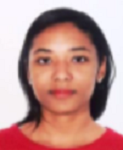Sports and the Construction of the Chinese Nation: A Shift from State Construction to Nation-State Construction
Abstract
Using methods that include dynamic investigation, historical research,and theoretical analysis, as well as dialectical thinking about double crises and double sublation, this paper explores the relationship between sports and Chinese nation building and highlights the role of sports in constructing the Chinese nation in different historical periods and against different political backgrounds since the founding of the Peoples’ Republic of China in 1949. In the early years, sport primarily focused on serving people’s health, production and labor, and national defence. However, learning from the Soviet Union model, competitive sports began to serve as a bridge to open up a new prospect for China’s diplomacy and help to establish the legitimacy of its international status. After economic reform and opening up, thanks to the “Ju Guo Ti Zhi”(national system:unified mobilization and deployment of relevant national forces)with concentrated efforts and resources for Olympic sports, China realized the century-old dream of uniting Chinese national spirits and strengthening national confidence, pride, and honor. Finally, the national rejuvenation as the new historical mission now highlights the shared prosperity of sports and the country and advocates the concept of people-oriented development with humanistic values based on cultural attributes, thereby realizing the transformation of New China’s sport from national construction to nation-state construction.
Copyright (c) 2021 Guochun Liu, Qing Chang

This work is licensed under a Creative Commons Attribution-NonCommercial 4.0 International License.
References
1. Houlihan, Barrie, and White, Anita. The Politics of Sports Development. Florence: Routledge, 2002.
2. Ren Hai. Sports power: from building on the country to building on the nation
3. Journal of Shanghai University of Sport, 2018, 42(01):1-6+40.
4. Hobsbawm, E. J. Nations, and Nationalism since 1780: programme, Myth, Reality. Cambridge [England]: Cambridge University Press, 1992.,143.
5. Smith, Prof Anthony D, and Smith, Anthony. Nationalism and Modernism. London: Taylor & Francis Group, 1998.
6. Zhou Ping, Recognition of the nation-state, Political Science Research, 2009 (04): 89-99.
7. Xu Xiaoqing. Research on Liang Qichao's Nation-State Thought, Journal of Central China Normal University, 2000(02):97-102.
8. Zhou Ping. Nation-State and Nation-Building, Political Science Studies,2010(03): 85-96.
9. Zhang Guoqing. He Yi, The concept of a Nation-State—from the perspective of Chinese scholars, Zhejiang Social Sciences, 2016(07):22-35+155.
10. Wu Chengen, Journey to the West, Beijing: People’s Literature Publishing House, 1980:946.
11. Hong, Fan, and Zhouxiang, Lu. ‘Representing the New China and the Sovietization of Chinese Sport (1949–1962)’, International Journal of the History of Sport 29.1 (2012): 1-29.
12. Mao Zedong. (Sports Research), Changsha: Hunan Publishing House, 1990:64.
13. Maddison, Angus, and Organization for Economic Co-operation Development. Development Centre. The World Economy. Paris, France: Development Centre of the Organization for Economic Co-operation and Development, 2006. Development Centre Studies, 1: 263.
14. The First Plenary Session of the Chinese People's Political Consultative Conference (The Common Program of the Chinese People's Political Consultative Conference),1949-09-29.
15. All China Sports Association. (All-China Sports Association Constitution,1952-06-24.
16. Coubertin. Olympic Memoirs, 126.
17. Xu, Guoqi. Olympic Dreams China and Sports, 1895-2008. Cambridge: Harvard University Press, 2008.
18. Brundage draft memoir, chapter 11, ABC, box 250, reel 244.
19. Huddleston, Sean. ‘The Politicization of Sport in Modern China: Communists and Champions’, Sport in History. Volume 37: Issue 4 (2017); Pp 535-537: 535-537.
20. Hong, Fan, and Zhou Xiang, Lu. ‘Sport and Politics in the 1980s: The Olympic Strategy’, The International Journal of the History of Sport 29.1 (2012): 74-97.
21. Mao Zedong. Mao Zedong's Research Speech in Wuhan, Hubei,1969-05.
22. Prepared by the National Sports Commission. China Sports Yearbook, Beijing: People's Sports Publishing House, 1993-06:8.
23. Communiqué of the Third Plenary Session of the Eleventh Central Committee of the Communist Party of China, Seeking Truth from Facts, 1978 (04): 3-9.
24. Juan Antonio Samaranch. ‘Speech at the award ceremony of the men's self-gun shooting competition at the 23rd Olympic Games in 1984’,1984-07-29.
25. in Guilan. The cultural origins of the ‘Sick man of East Asia, Lantai World, 2014(28): 110-111.
26. Tianjin Youth Christian Association. Three Questions about the Olympics, Tianjin Youth,1908.
27. Du Shangze. Xi Jinping met with the President of the International Olympic Committee Bach and received the Olympic Gold Medal, People’s Daily, 2013-11-20 (01).
28. Du Shangze. Chen Xiaowei.an exclusive interview of Xi Jinping with Russian TV station, People’s Daily, 2014-02-09 (01).
29. Xi Jinping. Xi Jinping: The Governance of China ,Beijing: Foreign Languages Publishing House, 2014:154.
30. Xi Jinping. Create a new situation in the development of the country's sports industry and accelerate the country’s construction into a sports power, People’s Daily, 2017-08-28(1).
31. State Sports General Administration. Study and implementation of General Secretary Xi Jinping's important exposition on sports work,2018-01-09.



